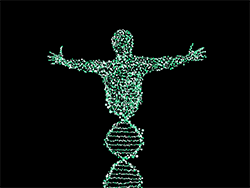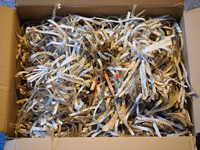Did you purchase a home DNA kit to research your Irish ancestry?
To celebrate St. Patrick’s Day, did you purchase a home DNA kit? The results reveal facts about your ethnicity, ancestry, paternity, and health. However, consider several facts about the use and safety of home DNA tests before you purchase one.
How your DNA is Used by Others
You can learn valuable information from a home DNA test. Your data could be used by other people, too, though, in several ways.
- Familial DNA Searches – You could be contacted by family members who may wish to build a relationship or do you harm. Additionally, law enforcement personnel can search DNA sites for familial connections that help them find crime suspects or solve crimes.
- Health Recommendations – You can pursue professional medical treatment based on your DNA results, but prescription and over-the-counter drug companies can also access your information and spam you with recommendations for their medications, vitamins and supplements.
- Insurance Queries – Life and health insurance companies can access your DNA results, determine if you carry a gene that causes diseases or increases your desire to take risks, and decide if they want to insure you.
- Employment Discriminations – The Genetic Information Nondiscrimination Act passed in 2008 forbids employers from hiring or firing anyone based on genetic information. However, your DNA records are public knowledge and easily accessible by employers.
Are DNA Tests Safe?
Your DNA includes your complete genetic code, making it one of your most valuable possessions. For this reason, carefully consider who should have access to your DNA data and sample.
- Carefully read the company’s privacy policy, including the fine print, to discover:
- How the company stores, uses and shares your information.
- When and how you can access your data and sample.
- If your sample will be used for research.
- The security of the digitized copy of your data.
- What happens to your information if the company is sold or you cancel your account.
- Consider skipping the extra questions about your lifestyle, health habits and personal preferences. Anyone can search the site’s database and discover your identity along with your private information.
- Consider how the results could affect your family’s privacy. For instance, would you want long-lost relatives to contact you?
- Discern if you’re emotionally ready to learn that about illnesses or diseases you could develop. Home DNA companies typically do not include counseling like genetic clinics offer.
- Hackers want your personal information, so research the reputation and security protocols of the DNA site before you sign up.
Home DNA testing can reveal amazing details about your ancestors, health and future.

 Do you have a pile of papers collecting dust on your desk, in your filing cabinet or in a safe? Instead of stockpiling every electric bill, tax return and retail receipt from the last 20 years, learn which papers to keep and which to toss.
Do you have a pile of papers collecting dust on your desk, in your filing cabinet or in a safe? Instead of stockpiling every electric bill, tax return and retail receipt from the last 20 years, learn which papers to keep and which to toss.